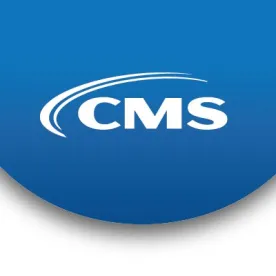On August 31, 2020, the Centers for Medicare & Medicaid Services (CMS) proposed a rule to align Medicare coverage decisions with breakthrough technologies approved by the Food and Drug Administration (FDA), thereby speeding access to new therapies. Aligning CMS coverage policy with FDA approval is a long-standing goal of device and drug manufacturers that have been frustrated by delays in Medicare coverage and reimbursement decisions following the FDA’s comprehensive review and approval.
The proposed rule would create a new coverage category, Medicare Coverage of Innovative Technology (MCIT), providing four years of Medicare payment for devices designated as a breakthrough device by the FDA. CMS requests public comment on whether diagnostics, drugs and/or biologics should be included in MCIT. During the four years, real-world evidence of the breakthrough device’s effectiveness would be gathered. That evidence would then inform permanent payment through traditional coverage options, such as a National Coverage Determination (NCD) or Local Coverage Determinations (LCDs).
The proposed MCIT pathway would only be available for products that have been designated as breakthrough devices through the FDA Breakthrough Devices Program. The device must also be FDA approved or cleared, and the use of the device must be for the FDA-approved or cleared indication(s), not for off-label use.
The FDA’s Breakthrough Devices Program is for medical devices and device-led combination products that provide for more effective treatment or diagnosis of life-threatening or irreversibly debilitating diseases or conditions. Device manufacturers must apply to the FDA for breakthrough status. Not all devices meet the breakthrough criteria and receive the breakthrough designation.
As proposed, MCIT would also apply to breakthrough devices authorized by the FDA within two years prior to issuance of the final CMS MCIT rule. However, breakthrough devices must also fit within a statutory Medicare benefit category to be eligible for MCIT. There are breakthrough devices that do not have a Medicare benefit category (e.g., some wearable health devices that are directly purchased by consumers), so not all breakthrough devices can be covered by Medicare due to statutory limitation. In addition, if CMS has previously issued an NCD on a particular breakthrough device, that breakthrough device is not eligible for MCIT.
Medicare would continue to make permanent coverage decisions based on a “reasonable and necessary” standard, which is implemented through a traditionally long and complicated process that critics charge stifles innovation. However, the proposed rule would tweak the “reasonable and necessary” standard. For permanent Medicare coverage, CMS would need to determine that the item or service is:
-
Safe and effective.
-
Not experimental or investigational.
-
Appropriate for Medicare patients.
The proposed rule also directs CMS to consider what is "covered by commercial insurers" when making Medicare coverage decisions. This is a departure from decades of Medicare policy, but speaks to an oft-repeated Trump administration priority to align Medicare with leading private sector practices. CMS requests public comment on how to implement this standard.
The proposed MCIT could greatly increase the benefits of the FDA’s Breakthrough Devices Program. Knowing that devices, once cleared by the FDA under the Breakthrough Devices Program, have a more direct and predictable pathway to Medicare coverage and reimbursement provides device manufacturers much-needed assurance regarding the ability of Medicare beneficiaries to access their products and greater certainty regarding the future marketplace for their devices. This policy development likely will spur innovation and may move some manufacturers to revisit previous devices in development – or on the shelf – and seek to bring new products to market under the FDA Breakthrough pathway.
Less ambitious plans for aligning FDA and CMS decisions were offered in previous Medicare regulations. Public comments on MCIT will be accepted through October 30. If you are interested in understanding how this policy development impacts you or if you would like assistance in preparing comments to the agency, our health care and government and regulatory affairs teams are happy to provide guidance.







 />i
/>i

